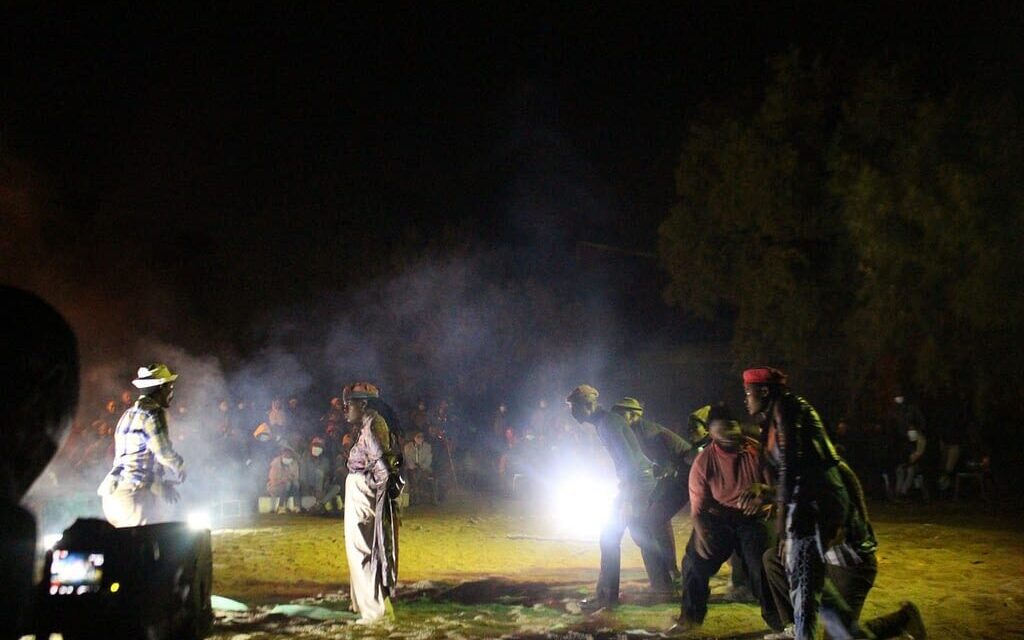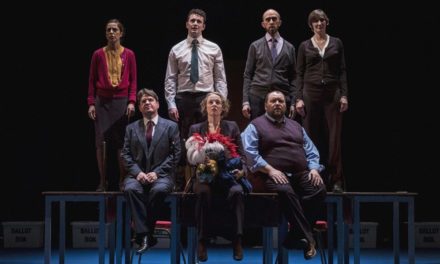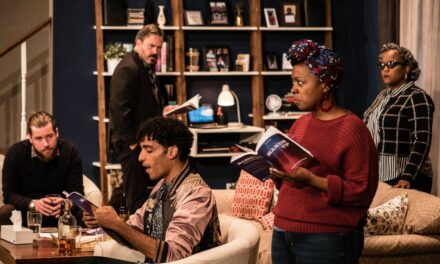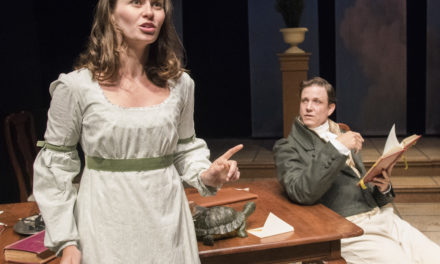Described as a “musical satire” and with its tongue-in-cheek title, which evokes a place and also serves as a statement, Chilahaebolae is the latest theatrical production by poet, playwright, theatre director, academic and storyteller Kgafela oa Magogodi.
The venue for the production was the Funda Community College in Soweto, a place which in its heyday was a beacon for visual arts education, but which is now a shadow of its former self – thus creating the “perfect” setting for this song-, dance- and dialogue-driven theatrical experience.
Even the chilly Johannesburg evening could not deter the audience, and the generous bonfires dotted around in a theatre-in-the-round format all made for a memorable and rip-roaring experience for those in attendance.
The story follows a somewhat familiar pattern in African folktales, where the aim is usually to ensure lessons such as the dignity of labor, the virtue of hard work and collaboration, the importance of problem-solving and the inevitable triumph of good over evil – but what makes Chilahaebolae stand out is how it does not follow the script and makes the story contemporary, with the characters having contemporary challenges. Hence, as one watches, it is clear that this is no ordinary folktale.
Given its deliberate use of the African folktale conventions as the narrative vehicle, Chilahaebolae utilizes animal characters with contemporary human traits, virtues, and weaknesses, and this gives the story a comfortable familiarity as they recognize the animals and the traits and behaviors each of them is associated with, whether virtuous or otherwise. This is where the brilliance of the story lies: it does not seek to reinvent the wheel but rather relies heavily on the rich African storytelling traditions which many are familiar with, having at one point or another sat around a fire and listened to these stories as they were told and retold.
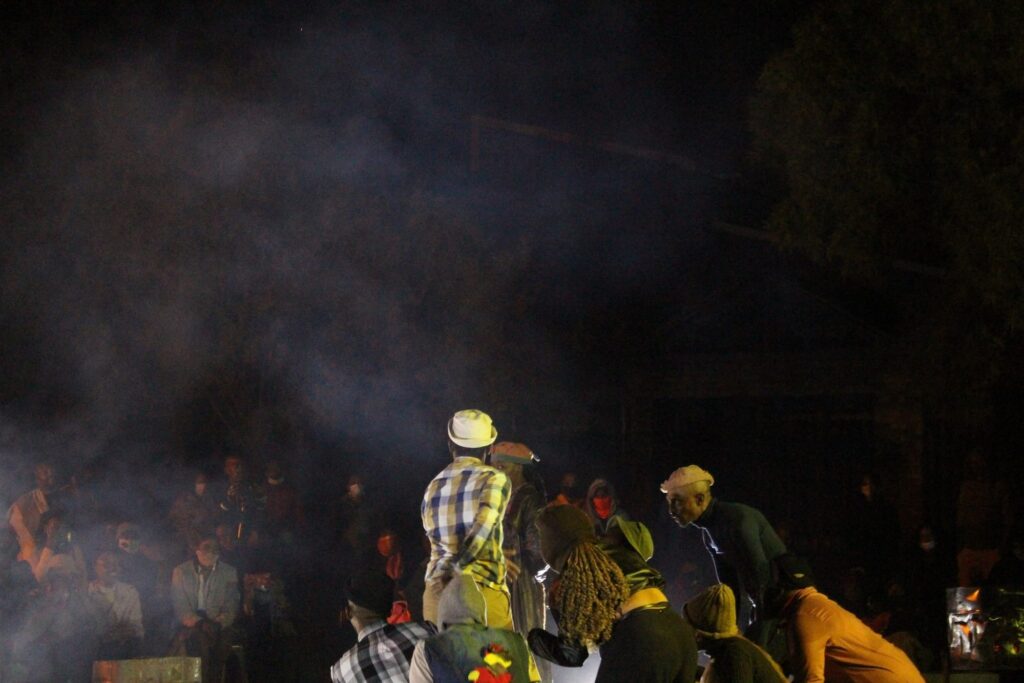
Kgafela oa Magogodi’s Chilahaeboalae at Funda Community College. PC: Omphemetse Ramatlhatse.
Those familiar with African folktales know they were told more often than not by grandmothers and other elders who would gather all the children around a fire and enchant them with how they would not only tell the story, as in doing so they would embody the animal characters and characteristics in weaving a vivid and stimulating narrative – thus the setting of Chilahaebolae in an outdoor space with bonfires around was not only evocative of that era, but also paying due homage to it as a reminder of how, within the family and community structures, there has always been ways of ensuring that through oration life lessons and important information was passed on from one generation to another.
Chilahaebolae featured a live band playing mostly African traditional instruments, and this added another layer, coupled with the powerful vocals of the actors and finished off with deft choreography that utilized not only the area demarcated for and as the stage, but even beyond it, thereby “inviting” audiences to be part and parcel of the show as it was happening around them as well.
This kind of theatre, which does not create an impenetrable demarcation between the audience and where they sit, and the actors and where they perform, is synonymous with the African folktale settings and the well-known “call and response” format as its hallmark.
This rich tradition of African folklore is not something often witnessed in theatre productions, given how Western and European theatrical traditions are now standard as represented by the use of the somewhat alienating proscenium stage.
Thus, Chilahaebolae is more than just a magical theatrical, storytelling, and musical experience – it is a reminder of the richness of the African folklore traditions and the importance of always drawing from that source.
Chilahaeboalae was written, directed and composed by Kgafela oa Magogodi, with Sibusiso Mkhize as Musical Director, Sinenhlanhla Mgeyi as Choreographer, and Production Design and Stage Management by Sinenhlanhla Zwane. It featured Abongile Matyutyu, Sibusiso Mkhize, Viwe Sikali , Khotso K Manaka, Khetekile Mahlangu, Ntando Ngcayiya and Nono Dombo. It was produced by Swart Gevaar Productions with support from the National Arts Council, and was on at the Funda Community College in Soweto from 16 – 19 June.
This article was originally posted on The African Theatre Magazine on July 19, 2021, and has been reposted with permission. To read the original article, click here.
This post was written by the author in their personal capacity.The opinions expressed in this article are the author’s own and do not reflect the view of The Theatre Times, their staff or collaborators.
This post was written by The African Theatre Magazine.
The views expressed here belong to the author and do not necessarily reflect our views and opinions.

